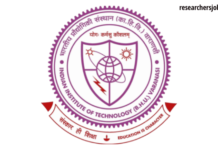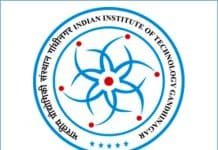Designation/Position- Postdoctoral researcher

The University of Luxembourg is a multilingual, international research University.Luxembourg Centre for Systems Biomedicine (LCSB) in close collaboration with the RIKEN Center for Integrative Medical Sciences (Japan) offers Postdoctoral researcher for candidate having PhD in Immunology, Cell Biology or Microbiology.
About- T regulatory cells (Tregs) are key players in maintaining tolerance and homeostasis of tissues and the immune system. Treg dysregulation critically contributes to various pathologic conditions such as autoimmune diseases, allergic diseases, infectious diseases, cancer, neurodegenerative diseases and metabolic inflammation. The international “Regulatory T cell responses at the crossroads of immune homeostasis and inflammation in the context of barrier diseases” (TregBar) project is an international research project funded by the Luxembourg National Research Fund’s (FNR) bilateral AFR funding instrument. To address the open questions on the balance of the immune system, the project will investigate functional gene regulatory and signalling networks of regulatory Tregs in the context of several barrier diseases by using various murine and human disease models. For this purpose, the collaborative project will combine expertise in basic immunology especially on Tregs, microbiome, single cell analysis, clinical immunology, deep immune phenotyping and computational network analysis. The program will initiate long-term collaborations in biomedical research between the Luxembourg Institute of Health (LIH; Esch-sur-Alzette, Luxembourg), the Luxembourg Centre for Systems Biomedicine (LCSB) at the University of Luxembourg (Esch-sur-Alzette, Luxembourg) and the RIKEN Center for Integrative Medical Sciences (IMS; Yokohama, Japan). The present FNR-supported postdoctoral research appointment will be hosted by the Eco-Systems Biology Group at LCSB (head: Prof. Paul Wilmes) in cooperation with the Laboratory of Gut Homeostasis (head: Prof. Kenya Honda) at the RIKEN IMS Center for Integrative Medical Sciences in Japan. Further collaboration partners include Prof. Markus Ollert (LIH), Prof. Dirk Brenner (LIH), Dr Mahesh Desai (LIH), Dr Feng He (LIH), Prof. Rudi Balling (LCSB) and Dr Alex Skupin (LCSB).
Research/Job area– Immunology, Cell Biology or Microbiology
Location- University of Luxembourg, UK
Eligibility/Qualification-
- A PhD in Immunology, Cell Biology or Microbiology.
- Strong publications record.
- Training in immunological methods especially multicolor FACS.
- Training in molecular biology, microbiology and cell culture techniques.
- Interest in T cell biology.
- Previous experience in microbiology and experience in handling mice will be considered an asset.
- Excellent working knowledge of English.
Job/Position Description- Research group is seeking a highly motivated and creative scientist with a highly successful record in scientific research who can independently design and execute experiments. More specifically, we are seeking an individual with a strong interest in fundamental and translational aspects of host immunity and its relation with the gut microbiome using state-of-the-art approaches that combine immunology, cell biology, biochemistry and animal models of infection. The project also involves a newly developed microfluidics-based model of the gastrointestinal human-microbe interface, called HuMiX, which allows proximal co-culture of human epithelial and immune cells together with gut microbes under physiologically representative conditions.
- Fully funded position.
- An exciting international environment.
- The University offers highly competitive salaries based on the candidate’s experience and is an equal opportunity employer.
Your Role
- Conceptualisation and design of experiments using the HuMiX model for the concomitant cultivation of human and microbial cells.
- Cultivation of human cell lines, microbial communities and immune populations with a particular focus on adaptive immune cell populations, including Treg and CD8 T cells.
- Performing experiments in germ-free and gnotobiotic mouse models of barrier dysfunction.
- Generation and analysis of readouts including multicolor FACS, CyToF, animal models and molecular biology techniques.
How to Apply- Applications (in English) should contain the following documents:
- A detailed curriculum vitae
- Cover letter mentioning the reference number
- List of publications
- Description of past research experience and future interests
- Name and addresses of three referees
All applications should be sent preferably ONLINE until 15.07.2018.
For Contact- Prof. Dr Paul Wilmes
E-mail: paul.wilmes@uni.lu







